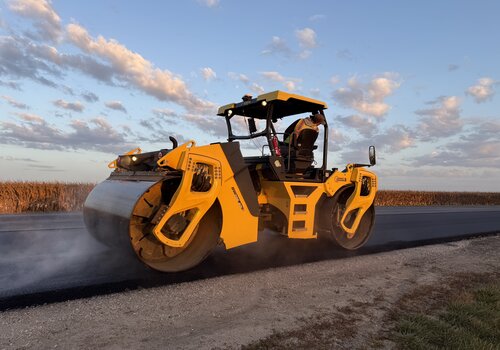Access to the right equipment can make or break a construction project. For small construction businesses, the cost of purchasing and maintaining a full fleet of heavy machinery can be prohibitive. This is where equipment sharing platforms come into play. These platforms offer a cost-effective and efficient solution for accessing the necessary tools and machinery. Here are eight key benefits of equipment sharing platforms for small construction businesses.
1. COST SAVINGS
One of the most significant advantages of equipment sharing platforms is the potential for cost savings. Purchasing heavy equipment requires a substantial upfront investment, which can strain the finances of small businesses. By using equipment sharing platforms, businesses can rent the machinery they need for specific projects, avoiding the high costs associated with ownership.
Cost Savings Benefits:
• Eliminate the need for large capital expenditures.
• Reduce maintenance and storage costs.
• Pay only for the equipment when it is needed.
2. ACCESS TO A WIDE RANGE OF EQUIPMENT
Equipment sharing platforms provide access to a diverse range of machinery and tools. This means that small construction businesses can find the exact equipment they need for any project, regardless of its complexity. Whether it's a specialized piece of machinery or a common tool, these platforms offer a vast inventory to choose from.
Access Benefits:
• Availability of specialized equipment.
• Flexibility to choose the right tool for each job.
• Ability to take on a wider variety of projects.
3. IMPROVED PROJECT EFFICIENCY
Having the right equipment at the right time can significantly improve project efficiency. Equipment sharing platforms ensure that businesses can quickly and easily obtain the machinery they need, reducing downtime and keeping projects on schedule. This efficiency translates to faster project completion and increased client satisfaction.
Efficiency Benefits:
• Minimize project delays due to equipment shortages.
• Streamline the equipment procurement process.
• Enhance overall productivity and project timelines.
4. ENHANCED FLEXIBILITY
The construction industry is dynamic, with project requirements often changing rapidly. Equipment sharing platforms offer the flexibility to adapt to these changes. Equipment can be rented with both long- and short-term agreements. This adaptability allows small construction businesses to respond quickly to new opportunities and challenges.
Flexibility Benefits:
• Short-term and long-term rental options.
• Ability to scale equipment usage up or down as needed.
• Quick response to changing project demands.
5. REDUCED MAINTENANCE BURDEN
Owning heavy equipment comes with an important responsibility: regular maintenance and repairs. This can be time-consuming and costly. Equipment sharing platforms alleviate this burden by providing well-maintained machinery. The platform providers handle the maintenance, ensuring that the equipment is in optimal condition and ready for use.
Maintenance Benefits:
• Eliminate maintenance and repair costs.
• Access to well-maintained and reliable equipment.
• Focus on core business activities without equipment-related distractions.
6. ENVIRONMENTAL BENEFITS
Sharing equipment can also have positive environmental impacts by maximizing the utilization of existing machinery. This leads to lower carbon emissions and a smaller environmental footprint. Additionally, well-maintained equipment tends to be more fuel-efficient, further contributing to environmental sustainability.
Environmental Benefits:
• Lower carbon emissions and environmental impact.
• Promote sustainable construction practices.
7. NETWORKING AND COLLABORATION OPPORTUNITIES
Equipment sharing platforms often foster a sense of community among users. Small construction businesses can connect with other industry professionals, leading to potential collaborations and partnerships. This networking can open doors to new projects, shared resources and valuable industry insights.
Networking Benefits:
• Build relationships with other construction professionals.
• Explore collaboration and partnership opportunities.
• Gain access to industry knowledge and best practices.
8. RISK MITIGATION
Renting equipment through sharing platforms can help mitigate risks associated with equipment ownership. These platforms typically offer insurance options that cover damage or theft, providing peace of mind to business owners. Additionally, the ability to rent equipment as needed reduces the financial risk of investing in machinery that may not be used frequently.
Risk Mitigation Benefits:
• Access to insurance coverage for rented equipment.
• Reduce financial risks associated with equipment ownership.
• Minimize the impact of equipment-related incidents.
Equipment sharing platforms offer many benefits for small construction businesses. From cost savings and improved efficiency to enhanced flexibility and environmental sustainability, these platforms provide a practical solution for accessing the necessary tools and machinery. By leveraging equipment sharing platforms, small construction businesses can stay competitive, take on a wider range of projects and achieve greater success in the industry. Embracing this innovative approach to equipment management is a smart move for any construction business looking to thrive in today's dynamic market.
PHOTO CREDIT: /BIGTOCKPHOTO.COM












